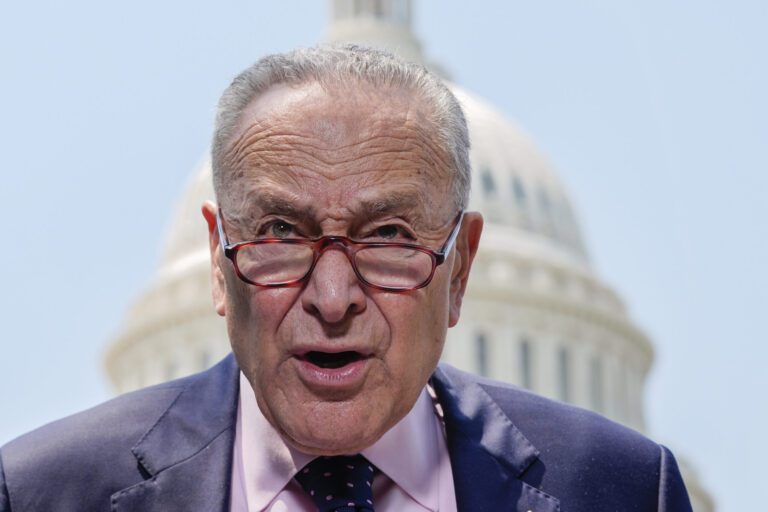Trump Retracts Negotiation Offer Amid Government Shutdown
The ongoing government shutdown, now in its second week, is marked by a significant shift in President Trump’s stance regarding negotiations with Democrats. As tensions escalate, the opposition party is adamant about achieving substantial progress on extending health insurance subsidies before any agreement is reached.
Senate Dynamics
On Monday night, Senate Democrats effectively blocked a clean, short-term funding proposal, known as a continuing resolution. This procedural motion required 60 votes to advance but attracted minimal support:
- Only Three Democrats voted in favor.
- One Republican, Senator Rand Paul, opposed the bill, citing concerns over the national debt.
The failure to pass this funding extension is indicative of the growing divide in Congress and raises questions about future negotiations.
Trump’s Changing Position
Earlier in the day, President Trump suggested to reporters that discussions were ongoing with Democrats. However, leaders from the Democratic Party quickly refuted this claim, stating that no such talks had occurred. Shortly thereafter, Trump reversed his earlier conciliatory tone, asserting that the government must be reopened before any negotiation on health insurance subsidies can begin.
“Democrats have SHUT DOWN the United States Government right in the midst of one of the most successful Economies… This has sadly affected so many programs, services, and other elements of Society that Americans rely on,” Trump expressed on Truth Social.
He further emphasized his willingness to engage on health care issues, urging Democrats to act swiftly in reopening the government:
“I am happy to work with the Democrats on their Failed Healthcare Policies… but first they must allow our Government to re-open.”
Push for Real Commitments
Despite Trump’s assurances, frustration exists among some lawmakers. Senator Angus King, one of the three Democrats who supported advancing the funding bill, hinted at a change of heart unless real commitments regarding health insurance subsidies are made:
“I’m contemplating changing my vote unless the Republicans are more forthcoming about dealing with the [healthcare] problem,” King stated.
Calls for Collaboration
During his earlier press conference, Trump expressed a desire to negotiate, albeit with reservations. When directly asked about the possibility of reaching a deal on health insurance subsidies, he replied:
“I’m not saying that’s gonna happen.”
House Republicans, particularly, are staunchly opposed to any negotiations while the government remains shut down. Senator Mike Rounds voiced a common sentiment among GOP lawmakers:
“I continue to tell them that the best thing they can do is, ‘Let’s open up the government.’ We can’t do much until we end the shutdown.”
Conclusion
As the government shutdown continues, the path forward remains unclear. Both parties are entrenched in their positions, complicating any potential dialogue. The current impasse not only affects federal operations but also raises concerns about essential programs and services that many Americans rely on.
For updates on government operations and negotiations, visit reputable sources like CNN and The New York Times to stay informed as the situation evolves.


